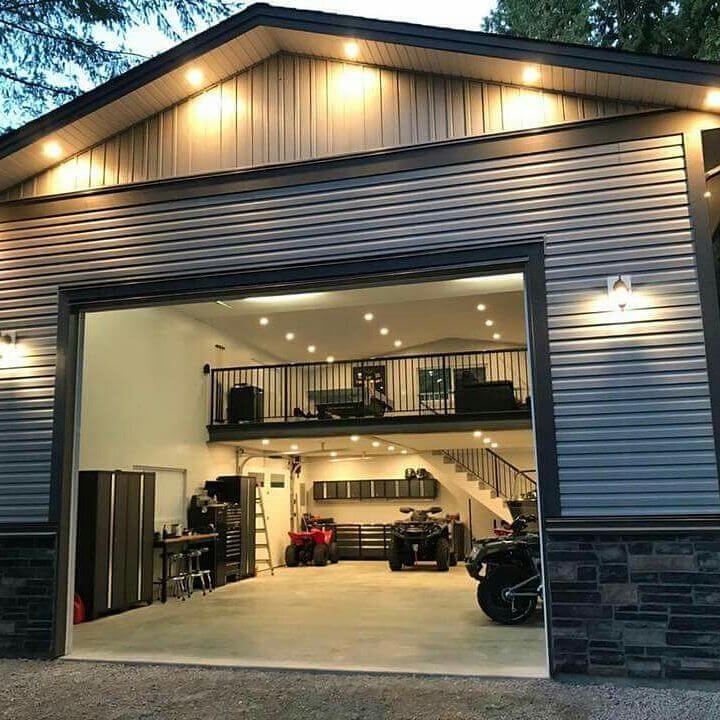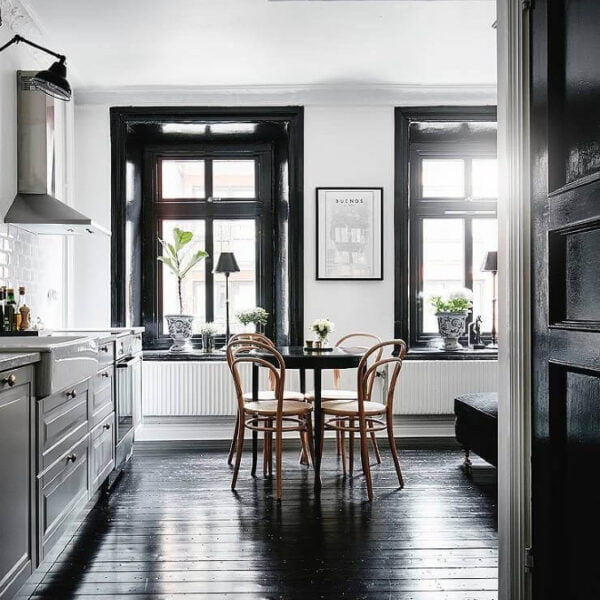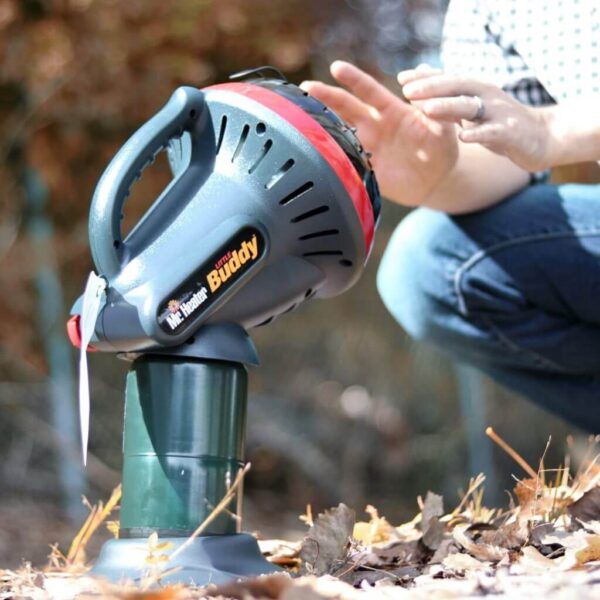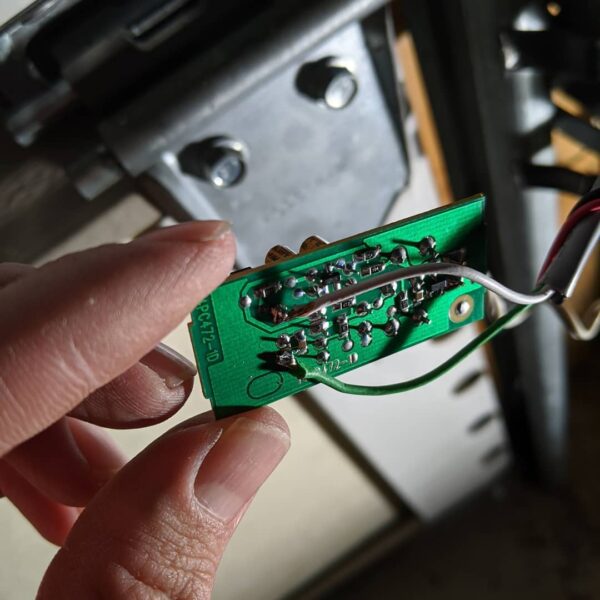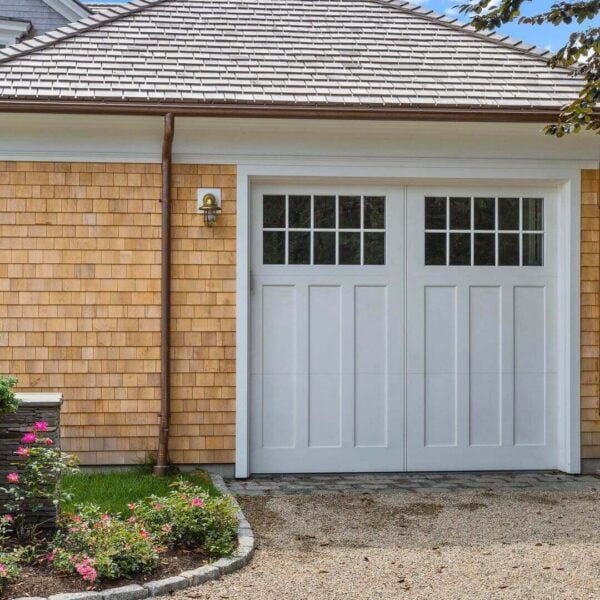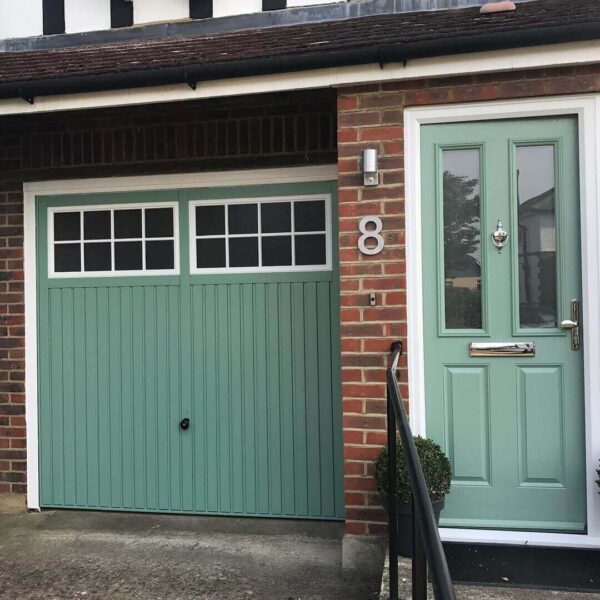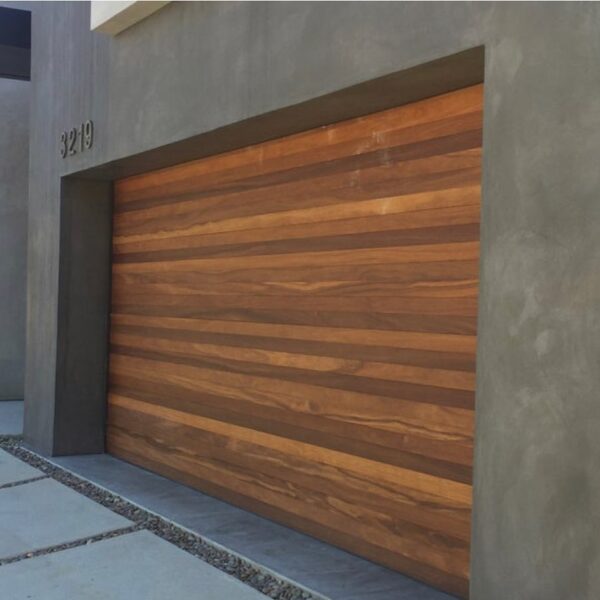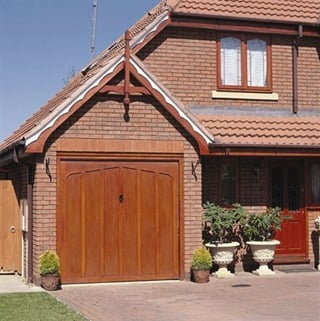The garage is a part of the house we don’t visit all the time except when necessary; either to pack our cars or to get our car when going out. It is also a place that can be used for a workshop. Whatever the case may be, the garage can be very cold in the winter and as a homeowner, you may want to use a propane heater to heat your garage while you work but are asking; are propane heaters safe in garages?
Propane Heaters are safe in garages and can be used in the garage as long as it comes with safety features such as automatic shut-off, overheat protection, a low oxygen sensor, and a high temperature coated safety guard. Ensure the propane heater is the right size for your garage and should come with Underwriters Laboratory (UL) label.
Table of Contents
Can I Use a Propane Heater in My Garage?
You can use a propane heater in your garage. But you must ensure that the type of propane heaters you use in your garage is the kind made for garages or indoors. For safety reasons, do not use an outdoor propane heater in your garage. You must also follow all the safety tips explained in the manufacture’s manual of the propane heaters you want to use in your garage.
Are Propane Heaters Safe in Garages?
Propane heaters are safe to be used in garages as long as you follow the safety tips of using propane heaters and ensuring that the propane heaters are installed on a non-combustible surface in your garage away from where people walk and away from any combustible materials such as furniture, curtains, doors, and beddings, etc.
The essence of following these safety tips when using propane heaters in your garage is to avoid carbon monoxide poisoning. Propane heaters are safe in garages only if you acknowledge these safety tips while using the heater in your garage.
What are beddings doing in your garage? the same goes with curtains. However, peradventure you have any of those in your garage, including other combustible materials such as furniture, and many more, you must ensure that the propane heater is not close to these materials to avoid story that touch.
Carbon monoxide poisoning is something you don’t want to suffer from. It can lead to death if not noticed on time. That is why you have to follow all the safety tips of using propane heaters in garages explained in this article.
How to Make Propane Heaters Safe in Garages
The best ways to ensure your propane heaters are safe for your garage are:
1. Buy Propane Heaters Made for Garages
When shopping for propane heaters to be used in your garage, you don’t have to just shop any propane heater you see on Amazon or other online shops. You have to verify if such a propane heater can be used in the garage or indoors.
There are lots of propane heaters manufactured to be used in the garage such as Mr. Heater F232000, and Martin Direct Vent Natural Gas Wall Thermostatic Heater. It is better to buy the type of propane heaters made for garages or indoors to be on the safer side.
The fact that they were made to be used in garages alone means that the manufactures had garages in mind when producing the heater. They know how the garage is and what goes on in the garage before making a type of propane heater that can fit perfectly in that space.
2. Choose the Right Size for your Garage
When shopping for propane heaters to be used in your garage, ensure to shop the type that is suitable for your type of garage. That means you have to know the size of your garage. How big or small your garage is. With this knowledge, you can be able to buy a propane heater that can heat your garage efficiently.
Many people don’t know the size of their garage, it is important to be able to know the number of BTU propane heaters to buy. If your garage is large and you buy a propane heater with low BTU, it may not be able to heat the garage efficiently.
Also, if your garage is super small, and you buy a propane heater with super high BTU, that may not be right as well. Find out the size of your garage and shop with it in your mind.
3. Underwriters Laboratory (UL) Label
When shopping for propane heaters for your garage, ensure you check that the propane heater has the Underwriter’s Laboratory (UI) Label. At least, you can read the review of the particular brand of propane heater you wish to buy to find out or ask people that have already been using that type of propane heaters. They might be willing to tell you. Most propane heaters from popular brands come with the UL label.
4. The Heater Must Have Low Oxygen Sensor
Ensure that the propane heater you wish to use for your garage has a low oxygen sensor feature. Most propane heaters come with them but you must check the product description and review to be sure the one you wish to buy has it. The job of the low oxygen sensor is to ensure that fuel is shut off if the oxygen level in the air gets too low.
The oxygen level in the air is supposed to be 21% which is normal. However, when it drops from 21% to 18/5% by volume or below, the low oxygen sensor on the propane heater will shut off the fuel, therefore, protecting you from any unforeseen circumstances.
While you may be questioning the importance of this low oxygen sensor. It is very helpful. It saves you time that you will be used to monitor the air volume in the garage. Especially those that have a workshop in their garage.
You may be cut up with work that you won’t even know what is going. The low oxygen sensor will detect what is going on and enter into action. This is a very important safety feature you must ensure that the propane heaters you are buying for your garage have.
5. High Temperature Coated Safety Guard
While shopping and using any propane heaters for your garage, you must ensure that the propane heater has a high-temperature coated safety guard on the front. They are designed to withstand very high temperatures. So ensure your propane heater has one so that it will be safe for it to be used in the garage.
6. Over Heat Protection
Please, ensure you are using a propane heater that comes with overheat protection in your garage for your safety. No need for a long story here. We all know what overheat is. Even the central heating system you are using in your rooms has the feature. Therefore the propane heater should have it also for safety purposes.
7. Read and Follow the Manufactures Instructions
Once you purchase propane heaters and they are delivered to you. Before installing it in your garage, please carefully read the manufacture’s instructions. In fact, while it may be tiring, you are also advised to read all the papers that come with the propane heater from beginning to end.
If the propane heater you bought is from different brands, or the same brand but different types. Please read their manufacturer’s instructions carefully one after the other.
We know how long and boring this manufacturer’s instructions can be but reading it is better. It will tell you what you need to know about the product and even the safety features. It can also tell you the specific way you can install the heater in your garage.
Also, the fact that you are not the one that will be installing the heater in your garage does not exempt you from reading the instructions. The installer will install the heater for you and go and you will be the one using the heater. Now, the question is, how will you know what to do if an issue occurs? This is why reading the manufacture’s instructions is very important.
8. Do Not Install the Propane Heater Where People Walk in your Garage
While installing the propane heater in your garage, it is important to take precautions in the places you are installing the propane heater in your garage. If you’re the only one mostly using the garage, that means you are aware of where you walk all the time. Therefore, do not install the propane heater where people walk all the time.
Don’t say “it doesn’t matter, I’m the only one using the garage anyway”. My brother my sister, it does matter. What if an intruder enters your garage while you are away. What if your visitor, your child enters the garage without your permission while you are away. These are questions you need to answer by yourself and install the propane heater in a place where people don’t walk.
9. Do Not Install the Propane Heater Near Combustible Materials
While installing your propane heaters in your garage, ensure they are not installed near any combustible materials such as wooden furniture, beddings, curtains, and many more.
This is to ensure that the combustible materials don’t catch fire from the propane heater. It will be an unfortunate accident if you fail to take note of this. Please do not take this particular safety tip for granted.
Also, if the type of propane heater you installed in your garage or you want to use in your garage is a wall-mounted propane heater, please ensure that your wall is not made of combustible materials. Also, ensure that a combustible material is not close to the propane heater on the wall.
10. Do Not Place Anything on your Propane Heater
Once the propane heater is installed in your garage, I beg you with the name of your loved ones, do not place anything on top of such a propane heater. As long as such a propane heater is installed and already in use, please ensure that nothing is placed on top of the heater for safety reasons.
11. Do Not Leave the Propane Heater On When you Leave your Garage
Once you know that you are through with everything you are doing in the garage, ensure to turn off the propane heater before closing the garage door. Don’t leave it on. Don’t say you will come back to turn it off. Please, always ensure that the propane heater is not left unattended. Make sure your mind is always there. Turn it off before leaving the garage.
12. Always Check your Propane Heater’s Functionality
Please when using a propane heater in your garage, always be vigilant. Check it out sometimes. Once you notice any yellow or orange flame from the propane heater instead of the blue flame, it means that something is wrong with the heater. Stop using the heater immediately and consult a technician.
This is because the yellow or orange flame is evidence that the gas is not burning properly. If the gas is burning properly, the flame should be blue. Contact someone that can come and fix the heater for you immediately.
13. Know What You Use Around Propane Heaters in the Garage
While you are told not to install your propane heater near combustible materials, you are also advised not to use any flammable materials near the propane heater. Please, while using a propane heater in your garage, do not spray air fresheners, deodorants, insecticides, spray cleaners, or hair spray.
If your garage is also your workshop, please be careful with the sprays you use while the heater is on. You can turn off the heater for some time before using the spray and turn it on after several minutes you have used the spray.
What Kind of Propane Heaters Can I Use in the Garage?
The best kind of propane heaters to be used in the garage is the type made especially for garages or indoors such as Rinnai FC824N heater and Bluegrass Living B28TPIR-BB Propane heater. They are the best propane heaters for the garage because they are specially made to be used in a garage or indoors.
Can I Use Mr. Heater Propane Heater in My Garage?
You can use Mr. Heater propane heaters in your garage but you must ensure that the type of Mr. Heater propane heater you wish to use in your garage is the type made to be used indoors. Do not use Mr heater propane heaters that are not made for indoors for your garage
Can You Run a Propane Heater in a Closed Garage?
You can run a propane heater in a closed garage as long as such a propane heater is manufactured to be used indoors. For you to run a propane heater in a closed garage without any problems, you must use the type of propane heaters that can be used indoors and with enough ventilation coming into the garage.
How Much Ventilation Do I Need for Propane Heater in Garage?
The standard amount of ventilation needed for a propane heater in the garage is enough fresh air. You must ensure that there is enough fresh air space of at least 3 square feet (2,800 sq. cm.) for each 100,000 BTU/Hr of heater output in the garage while using a propane heater.
Do You Need to Vent a Propane Heater in a Garage?
You do not need to vent a propane heater in a garage if you purchase a vent-free propane heater because they require neither venting nor ductwork to operate. But if you purchase a vented propane heater for your garage, you will need to vent it because vented propane heaters require venting to work.
How Long Can You Run a Propane Heater in a Garage?
You can run a propane heater in a garage for more than 10 hours because each gallon of propane contains 91,502 BTUs of potential heat and each pound contains approximately 21,548 BTUs, meaning that you can run a 20-pound propane tank in a 1,000 square foot garage for more than 10 hours.
Final Thoughts
While there is nothing wrong with using a propane heater in the garage, you should always make sure to use the propane heater in the safest way you can. This is between life and death. Follow all the propane heater garage safety tips explained in this article and you are good to go. Please, do not leave the propane heater on while you sleep in the garage. If you want to take a nap in the garage, ensure the propane heater is off. This is the way propane heaters are safe for garages.

